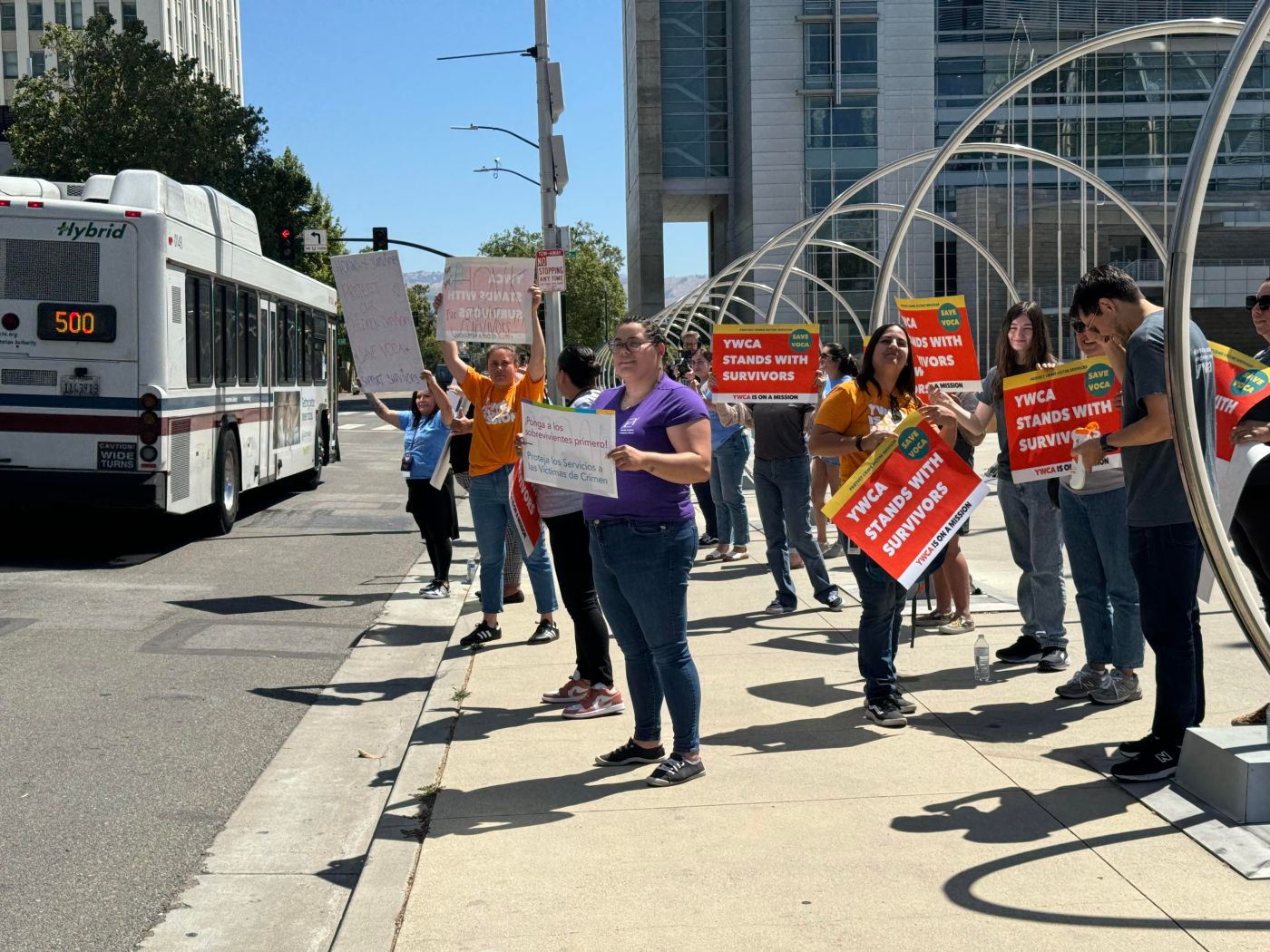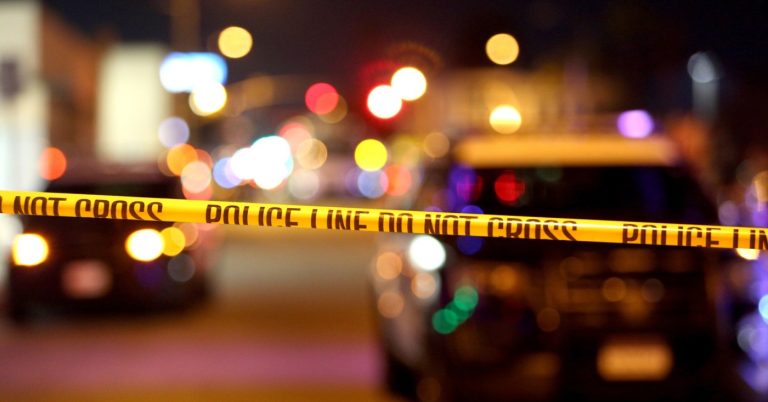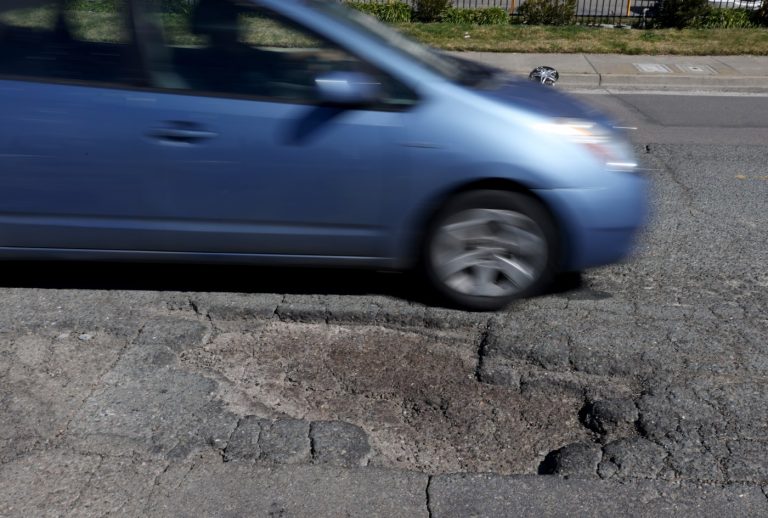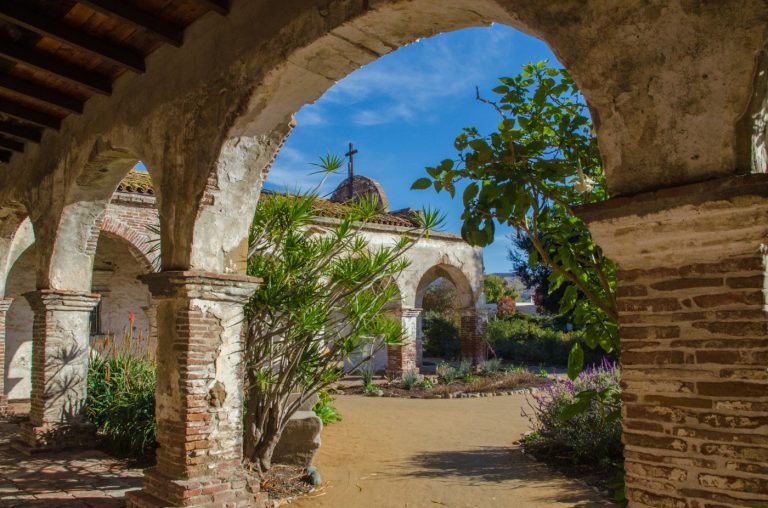Advocates and policymakers gathered outside San Jose City Hall on Friday morning to push the state government to preserve funding for victims services organizations after a projected $700 million slash in the federal funding that is distributed to services nationwide.
The rally comes in response to a roughly 37% cut in federal funding for the national Crime Victims Fund. The fund, established by Congress in 1984, sends money to state governments to support organizations for crime victims, including domestic violence shelters, rape crisis centers and counseling services. It is financed by fees and penalties paid by people and corporations convicted of federal crimes.
“We cannot and we will not balance our budget on the back of survivors,” Kasey Halcón, Santa Clara County deputy county executive, said at the rally.
The organizations are asking the state to provide a minimum of $100 million and up to $200 million in one-time emergency funding for victims services, according to a letter to state lawmakers signed by 212 organizations from across the state. On Wednesday, California lawmakers proposed more than $100 million in funding to compensate for the lost federal funds in the Joint Legislative Budget Plan for fiscal year 2024-2025. The funding will not be finalized until Governor Gavin Newsom approves the state budget.
“This is a significant victory,” Halcón said. “But at the same time our work is not done. We must convince the governor to support the inclusion of this funding in the final budget deal.”
Federal dollars for the Victims of Crime Act, which created the fund, have been decreasing over the past several years. FY 23-24 saw $1.353 billion in funding nationally, down from $1.9 billion the year before, according to a fact sheet compiled by the nonprofits. Funding peaked around $13 billion in 2017.
The funding California receives from the federal act will see a roughly 43% cut for FY 24-25, according to the fact sheet. California’s allocated funding for the upcoming fiscal year is $179 million less than it was in 2019.
Ahead of the slate of speakers, attendees lined Santa Clara Street with signs reading “honk for survivors” and “put survivors first,” prompting honks from cars driving past. Audience members wore shirts representing the organizations they were affiliated with and carried signs of support with them. Between some speeches, audience members chanted, “It’s black and white, California must do right.”
Representatives from affected nonprofits spoke of the impact this lack of funding will have on their organizations.
Jennifer Dow Rowell, executive director of Safe Alternatives to Violent Environments, said that the funding cuts will impact the organization’s offerings, including its safe house, crisis line and housing programs. The organization will have to go from housing five families in alternative housing each night to two families.
“That’s three families left out in the cold,” Dow Rowell said. “We cannot allow that.”
Santa Clara County Supervisor Cindy Chavez added that these programs have been underfunded for years and now face losing their already-limited funding. Chavez said that the county could lose as much as 40% of its emergency shelter and housing programs, 30% of rape crisis services and 30% of services for child neglect and abuse survivors.
Organizations will face having to lay off staff, increase wait time for services and scale back on offerings, the organizations wrote in the letter to lawmakers. Safe Alternatives to Violent Environments’ sister legal organizations in Alameda County will lose over $200,000 in legal services, Dow Rowell added in her speech. Santa Clara County District Attorney Jeff Rosen said that last year his office’s victims services team provided 54,000 services to over 6,600 victims of crime, but a lack of funding would result in a one third cut to these services.
“It’s shameful,” Rosen said, that “in the wealthiest country, in the wealthiest state, that this is how we’re treating the victims of crime.”
Halcón said that the funding cuts in California are equivalent to the services provided to 365,000 survivors in one year.
“Not getting a phone call back. Hotlines going unanswered. Shelter beds getting cut. Victims testifying alone,” she said.
“The impacts of these cuts will fall hardest on smaller programs, communities that have been historically underserved and rural programs,” the coalition wrote in the letter. “For survivors, this will reduce their ability to access the support and healing they need and deserve.”
A group of 23 California Assembly members signed onto a letter expressing their support for allocating funding for victims services to make up for the lack of federal funding.
“Without some level of support, California’s victim service providers are at risk of devastating funding cuts that in some instances may require programs to close their doors all together,” the lawmakers wrote.
A bill put forward by Assemblymember Jesse Gabriel would implement a funding model similar to the federal law for California on a state level, establishing a funding stream for victims services organizations by holding corporations found guilty of criminal wrongdoing accountable.
“We as a society have a responsibility to take care of victims of crime,” said San Jose City Councilmember Domingo Candelas. “These cuts are going to be devastating.”












